A mere of two months after the Alliance for Change (AFC) and A Partnership for National Unity (APNU) polled sufficient votes to secure a single seat more than the People’s Progressive Party/Civic (PPP/C) in the National Assembly, questions have arisen as to just how effective a parliamentary opposition they are likely to be. On the face of it, the altered mathematics of the National Assembly suggests that the debates that precede the passage of legislation can now be far more purposeful, since, for the first time in the country’s post-independence history, the voting strength of the opposition is greater than that of the ruling party.
It is a circumstance that has given rise the view that there is now a much greater semblance of genuine democracy in the extant parliamentary arrangements. Hitherto, the ruling party could afford to sit back and watch the opposition spend itself in vigorous parliamentary presentations, the merits or otherwise of which made no difference to the outcome of the vote. In theory at least it is different now and speculation is already rife that the parliamentary parties – all of them – are now much more compelled to work together.
If it had been anticipated that the first real test of the collective will on the part of the two opposition parties to work together might have come during the 2012 budget debate which is only a few weeks ahead, that test has come much earlier and the evidence that it has left is decidedly unclear. What is not debatable is that the inter-party wrangling that preceded the eventual nomination of AFC co-leader Raphael Trotman as Speaker of the National Assembly sent just the kinds of signals which APNU and the AFC would have wanted to avoid.
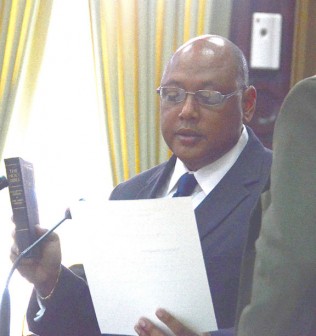
It is no secret that the two are not what one might call bosom political buddies. In the runup to the November 28 general elections AFC presidential candidate Khemraj Ramjattan had explicitly and repeatedly rebuffed overtures by APNU to join it in “partnership.” Ramjattan’s implied criticism of APNU was that it was, in large measure, a near complete reinvention of the People’s National Congress (PNC), himself and Trotman having founded the AFC specifically for the purpose of distancing their political selves from the polarized politics which the PPP and the PNC have, for decades, symbolized.
Not that the AFC and APNU might not have shared concerns about the governance style of the PPP/C; what was clear, however, was that the AFC felt sufficiently confident that the 2011 elections would result in a definitive carving out of its own political space to ‘go it alone.’
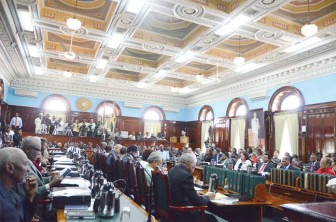
After the elections were over the AFC had also pointedly distanced itself from the APNU-driven protests that targeted the Guyana Elections Commission (GECOM) and sections of the business community. In fact, even as APNU Leader David Granger was insisting that his coalition would accept the result of the poll delivered by GECOM only if that result tallied with the statements of poll, Ramjattan was making it clear that his party was ready to accept the result without either query or protest.
The hullabaloo over who would get the Speaker’s job was altogether unexpected. Both the AFC and APNU appeared determined that this time around the Speaker would come from the opposition rather than the governing party. The PPP/C, predictably, was offended by the idea, its argument being that the custom in parliamentary democracies has been that the governing party decides on a Speaker.
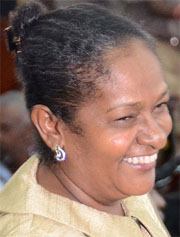
One might have thought thereafter that it simply remained for the joint opposition to use its parliamentary majority to get its way on the matter of the Speaker. But that was not to be. Both parties put forward their own candidate and neither appeared prepared to stand down. A war of words followed. APNU Leader David Granger, publicly pronounced on the unsuitability of the AFC’s candidate, Moses Nagamootoo to hold the post. Ramjattan dug his heels in, declaring, according to media reports that unless the AFC got its way it would cause the Speaker’s job to go to Mr. Ramkarran.
In the end and having, it seems, even explored the idea of rotating the Speaker’s post, both parties appeared reasonably satisfied with Trotman as a compromise candidate. That left the PPP/C sufficiently disgruntled to cause it to hint at the possibility of an early general election where, possibly, it might restore its parliamentary majority.
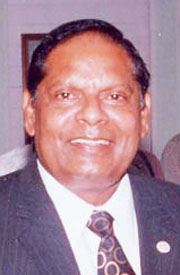
The political brouhaha over the election of a Speaker has, understandably, given rise to public speculation as to whether the hoped-for united opposition to keep the government on its toes and render it accountable was ‘a sure thing’ after all. If it is too early to determine whether the AFC and APNU can put their differences on the matter of the Speaker behind and bring a measure of maturity to their work in parliament, the announcement by Speaker Trotman, within hours of his election that he will not be seeking re-election as Co-Leader of the AFC has added a further dimension to the issue.
How the two political parties see themselves in the grander political scheme of things will be the principal determinant of whether or not they can and will work together. If the APNU coalition occupies by far the larger number of seats in the National Assembly, the difference in numbers does not, for all practical purposes, make a material difference. Neither party can serve as an effective opposition to the PPP/C; and it was just this that was demonstrated by the AFC when it refused to back away over the issue of the Speaker.
Accordingly, an effective opposition can only materialize if the two both adopt postures of maturity and broad-mindedness and create mechanisms for working out such differences as may arise from time to time.
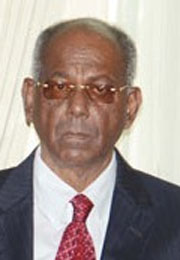
If political cynics see the circumstance of an opposition majority as an opportunity to lay a long-term ambush for the PPP/C, that too would appear unworkable, since, apart from the fact that the executive can find ways of frustrating the work of the National Assembly anyway, there is no telling what might be the outcome of a snap general elections if the government were to decide that that is the way to go to try to bring an end to the frustration of being outvoted in the Parliament.
The other consideration that cannot be ruled out is a strategy on the part of the government to present the opposition as devious and obstructionist in order to win back such support as it might have lost at the last elections. Indeed, evidence that such a strategy may well be on the cards surfaced in a remark made recently by PPP stalwart and Presidential Advisor Gail Teixeira to the effect that the outcome of the controversy over the issue of the Speaker must have made AFC supporters feel as though they had in fact voted for APNU.





